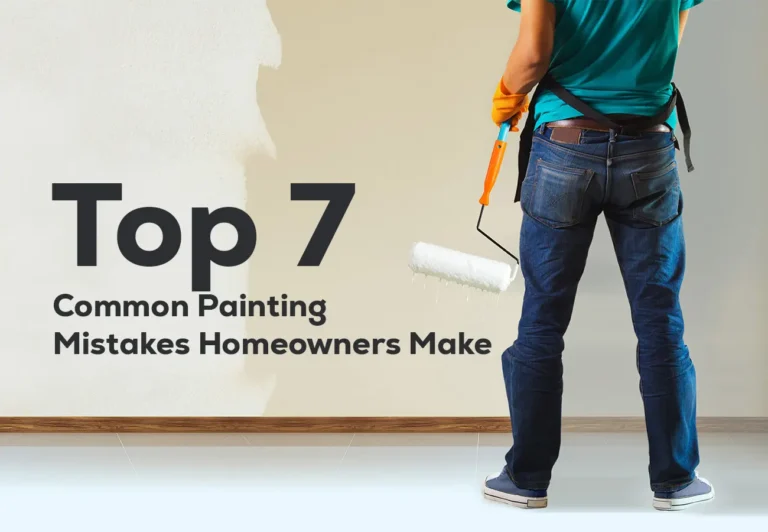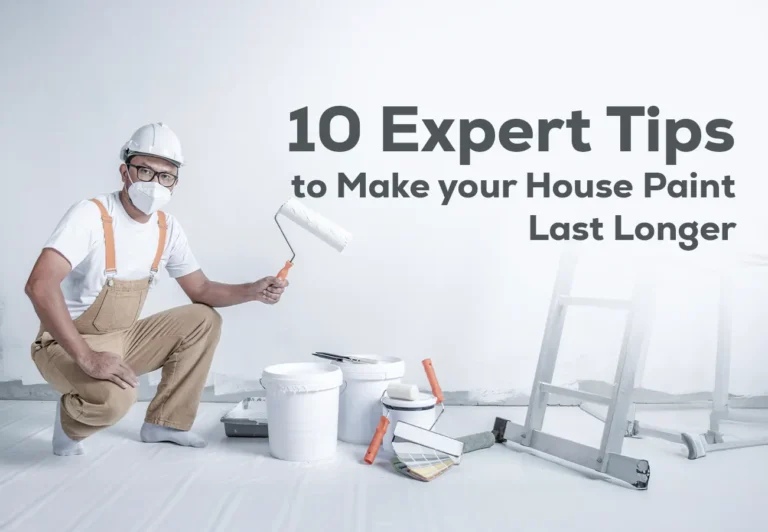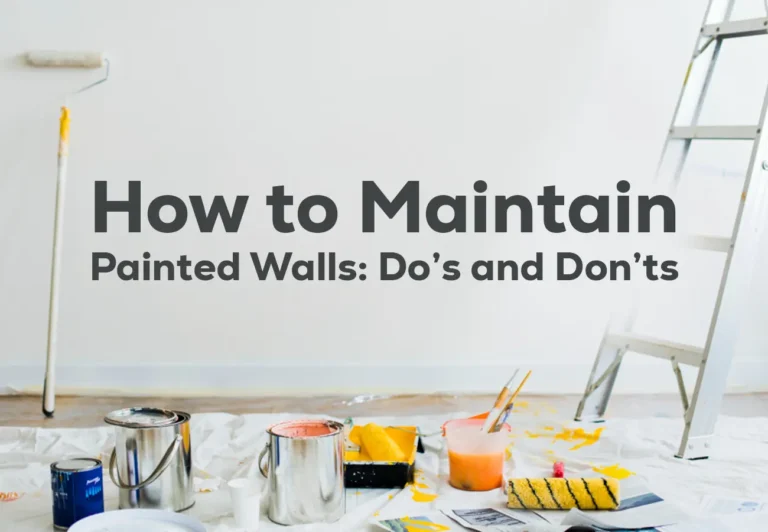Your home can be transformed in an instant with a new coat of paint, but the true value is in ensuring that the vibrant finish lasts for years. If your paint work is not done or maintained correctly, it may decay more quickly than you would think given Australia’s climate, which includes hot sun and salty coastal air.
The good news? You can extend the life of your home’s paint significantly with the right techniques and maintenance habits. Since we at Spot Free Painting think that the first time is always the best, we’re offering ten professional recommendations today to make sure your next paint job looks better, lasts longer, and protects your home for years to come.
Start with Proper Surface Preparation
Preparation is the foundation of a long-lasting paint job. Before applying any new paint, all dirt, mildew, peeling paint, and old flaking layers must be completely removed. This often includes washing the walls, scraping off old paint, sanding rough spots, and sealing cracks.
One of the main reasons for early paint failure is poor preparation. At Spot Free Painting, we take particular care to prepare the surface since a clean, smooth surface guarantees that your new paint will adhere correctly and last longer.
Always Use High-Quality Paint
Not all paints are made equally. Although inexpensive paint could save you money up front, it frequently stains, peels, and fades rapidly. Conversely, high-quality paints provide superior coverage, durability, resistance against UV rays, and color retention.
We suggest reputable Australian companies that are made to survive the severe local climate, such as Haymes, Taubmans, and Dulux.
Don't Skip the Primer
Primer acts like glue between your surface and the paint. It helps the top coat adhere better and evens out porous or uneven surfaces.
Primers are necessary whether you’re painting over dark colors, fixing stains, or painting exposed surfaces like plaster or wood. Paint may peel or break too soon if priming is skipped.
Paint in the Right Weather Conditions
The weather is important, particularly in Australia. Rainy, windy, and hot days may all harm your paint job. Low humidity, little direct sunshine, and mild temperatures (15–25°C) are ideal.
Extreme weather conditions can cause paint to hold moisture, dry too quickly, or form bubbles. Always check the weather forecast and choose the right season for the job – ideally spring or autumn.
Choose the Right Finish for the Room
The type of paint finish you use depends on the room in question.
- Use Flat/Matt for surfaces like ceilings and anywhere there isn’t much foot traffic.
- Satin/Eggshell is just right for living rooms and bedrooms.
- Semi-Gloss/Gloss are great for kitchens, bathrooms, doors and trims since they are durable and simple to clean.
Selecting a poor finish can cause your floors to scuff easily, be hard to clean or start to fade quickly.
Allow Adequate Drying Time Between Coats
Even though it’s attractive to hurry, patience makes a difference. You should allow every coat of paint to dry completely before continuing. Failure to do this may result in streaks or sections of the paint that begin to peel.
The common practice is to space coats by 2-4 hours, but you should also follow the manufacturer’s advice.
Regular Cleaning and Maintenance
Paint needs to be looked after regularly, even if it’s the highest quality brand. Over time, kitchens and hallways are covered by dust, oils and stains.
Regularly (about every three months or so) wipe walls with a gentle cloth or sponge and a mild soap solution. Don’t use any hard cleaning tools or abrasive products on the paint to keep it safe.
Fix Moisture Issues Early
Moisture is a frequent cause of ruined paintwork. A leaky roof, problems with plumbing and poor ventilation can all cause the paint to bubble, peel or become covered in mold.
Check the walls, especially in bathrooms, basement areas and around the outside of the house, for dampness or mildew. Deal with water and air leakage right away and make sure you have air circulating by using exhaust fans or dehumidifiers.
Schedule Regular Touch-Ups
Minor scrapes and chips can get worse over time if you don’t repair them. When you spot paint these parts of the walls, your walls stay attractive and the paint does not deteriorate further.
Check the most-used parts of your home – entryways, hallways and the edges of doors and windows – about once every 6 months to a year.
Hire a Professional Painter for Complex Jobs
Painting by yourself can be enjoyable, yet to tackle complicated walls, detailed edges or heritage sites you should hire experts.
We guarantee our licensed painters at Spot Free Painting carry out every project with great care, accurate workmanship and excellent materials. You can count on perfect results every time – and feel secure.
Conclusion
A great paint job is about great paint and also about the attention and quality of every stage of application.
From beginning to end, these 10 expert tips will help you get vibrant walls that will last a long time. But would you like to hand it over to the experts?
Reach out to Spot Free Painting now for help with that free quote and consultation – we’ll guarantee your paintwork satisfies you for many years.




